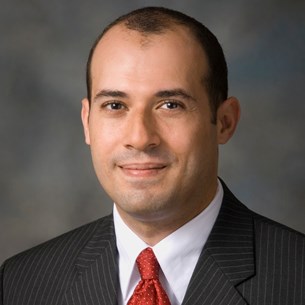Meeting
2023 ASCO Annual Meeting

University of Texas MD Anderson Cancer Center, Houston, TX
Ahmed Omar Kaseb , Roniel Cabrera , Renuka Iyer , Neehar Parikh , Richard Kalman , Kirhan Ozgurdal , Javeed Khan , Svetlana Babajanyan , Richard S. Finn
Background: In the observational REFINE study of regorafenib (NCT03289273) in pts with uHCC, treatment-emergent adverse events (TEAEs) were consistent with those reported in the global, phase 3 RESORCE trial (YJ Kim, ILCA 2022). Median overall survival (OS) in the overall global cohort of REFINE was 13.2 months; here, we present the final analysis of the US pt cohort. Methods: REFINE was an international, prospective, multicenter study that enrolled pts with uHCC for whom a decision to treat with regorafenib was made by the treating physician prior to enrollment, according to the local health authority approved label. The primary objectives were safety, including incidence of TEAEs (MedDRA v25) and dose modifications due to TEAEs. Secondary endpoints included OS, progression-free survival (PFS), and duration of treatment (DoT). Results: Of the 1005 evaluable pts from the global cohort, 65 pts (6%) were from the USA. In the US cohort, 78% were male, 69% had ECOG PS 0/1, and the population was younger than the global cohort (54% were aged <65 years vs 45% in the global cohort). The most common HCC etiology was hepatitis C in the US cohort (52% vs 24% in the global cohort) and the second most common was alcohol use (34% vs 25% in the global cohort). A lower proportion of US pts had extrahepatic spread compared with the global cohort (48% vs 59%), while a similar proportion had vascular invasion (both 34%). Use of prior immune checkpoint inhibitors was more frequent in US pts than in the overall global cohort (25% vs 10%). Most US pts (88%) had received prior sorafenib, consistent with the global cohort (96%). However, a relatively lower proportion of pts received regorafenib as a second-line therapy (71% vs 84% in the global cohort). Transarterial chemoembolization was the most common prior non-systemic treatment (42%). Median DoT was 3.1 months (range <0.1–24.6 months) in US pts vs 3.7 months (range <0.1–38.9 months) in the global cohort. TEAEs were reported in 91% of US pts and apart from a lower incidence of diarrhea and hand–foot skin reaction (HFSR) in US pts, incidences of TEAEs were comparable to the global cohort. In addition, TEAEs resulting in dose modification were relatively lower in US pts (38% vs 45% in the global cohort). Median OS in US pts was 11.4 months (95% CI 8.4, 18.0), similar to that reported for the global cohort (median OS 13.2 months [95% CI 11.6, 14.8]). Conclusions: The REFINE real-world study confirmed the safety and effectiveness of regorafenib in a broader population of pts than in the RESORCE trial. The findings remained consistent in US pts with uHCC. Clinical trial information: NCT03289273.
| TEAE, n (%) | US cohort (n=65) | Global cohort (N=1005) |
|---|---|---|
| Fatigue | 17 (26) | 200 (20) |
| Diarrhea | 11 (17) | 296 (29) |
| Decreased appetite | 11 (17) | 177 (18) |
| Nausea | 9 (14) | 80 (8) |
| HFSR | 8 (12) | 329 (33) |
| Constipation | 7 (11) | 71 (7) |
Disclaimer
This material on this page is ©2024 American Society of Clinical Oncology, all rights reserved. Licensing available upon request. For more information, please contact licensing@asco.org
2023 ASCO Annual Meeting
Publication Only
Publication Only: Gastrointestinal Cancer—Gastroesophageal, Pancreatic, and Hepatobiliary
Gastrointestinal Cancer—Gastroesophageal, Pancreatic, and Hepatobiliary
Hepatobiliary Cancer - Advanced/Metastatic Disease
NCT03289273
J Clin Oncol 41, 2023 (suppl 16; abstr e16114)
10.1200/JCO.2023.41.16_suppl.e16114
e16114
Abstract Disclosures
2024 ASCO Gastrointestinal Cancers Symposium
First Author: Yoon Jun Kim
2022 ASCO Gastrointestinal Cancers Symposium
First Author: Richard S. Finn
2023 ASCO Gastrointestinal Cancers Symposium
First Author: Richard S. Finn
2023 ASCO Gastrointestinal Cancers Symposium
First Author: Jamie Partridge